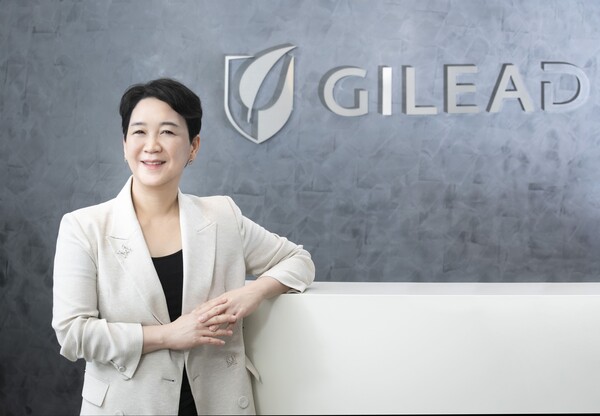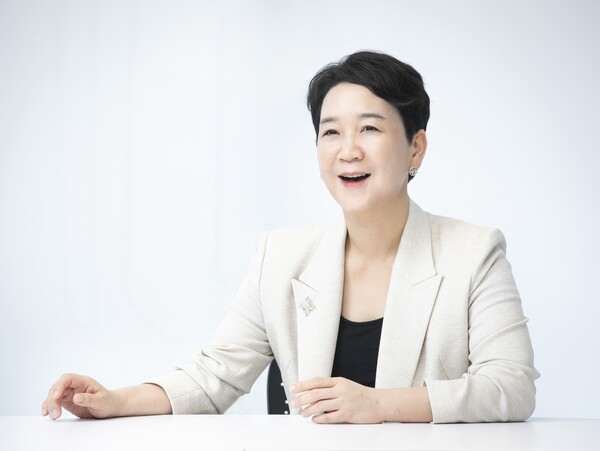
After dominating Korea’s virology market for more than a decade, Gilead Sciences is shifting gears, building out an oncology portfolio and preparing to file its first CAR-T therapy in the country.
The pivot is anchored by Trodelvy (sacituzumab govitecan), the company’s only oncology drug currently on the Korean market. The antibody-drug conjugate (ADC), approved for metastatic triple-negative breast cancer (TNBC), secured reimbursement in June. Gilead is now pursuing label expansions and deeper market penetration.
Trodelvy is "just the beginning," said Choi Jae-yeon, general manager of Gilead Sciences Korea, in a recent interview. The company is laying the groundwork for a long-term cancer strategy, not a one-off launch, she said. That includes expanding indications, initiating local trials, and targeting other tumor types.
Next in line is Yescarta (axicabtagene ciloleucel), Gilead’s CAR-T therapy for relapsed or refractory large B-cell lymphoma, developed through Kite, its U.S.-based cell therapy subsidiary.
Already designated an orphan drug in Korea, the company has completed its local regulatory filing and is aiming for a commercial launch in 2026. “We’re ready to move as soon as approval comes through,” Choi said.
That would put Gilead among the few multinationals rolling out CAR-T in Korea using in-house assets. "At Gilead, we’re still early in our oncology journey," she said, but noted the goal is to establish Korea as a serious node in the company’s global oncology strategy, with reimbursement and trial infrastructure in place.
The broader pivot reflects a move away from Gilead’s historical antiviral base. More than 80 percent of its global virology trials currently run in Korea, a figure the company sees as a competitive edge. The next step, she said, is to bring that same operational depth to solid tumors, hematologic cancers, and immuno-oncology combinations.

When Trodelvy was reimbursed, Gilead brought patients and caregivers into the room -- not just as guests, but as contributors. The meeting sparked an internal shift. “It showed us that real access isn’t just about approval,” Choi said. “It’s about creating a space where patients are part of the process.”
That access-first approach is also driving Gilead’s HIV prevention strategy. The company is preparing to file lenacapavir in Korea, a long-acting injectable PrEP drug recently approved in the U.S. under the brand name Yeztugo. While the original formulation, Sunlenca, was cleared by the FDA in 2022 for treatment-experienced patients, Yeztugo was approved in June 2025 as the first PrEP option given just twice a year.
In Korea, Gilead has already filed lenacapavir as an HIV treatment, with plans to introduce the PrEP formulation as well. The timeline remains uncertain, but Choi said the company is “doing everything we can” to bring the injectable to market.
Stigma and late diagnosis remain major barriers. Korea has one of the lowest HIV diagnosis rates among OECD countries. Choi said the company is working with LGBTQ advocacy groups and local communities to build trust and improve access.
According to Gilead, the company signed voluntary licenses in 120 countries in 2024 to enable low-cost production of the injectable PrEP therapy. Choi said Korea could be considered for similar access models if pricing challenges arise.
Meanwhile, Gilead Sciences Korea operates with a staff of about 100, most from medical or scientific backgrounds. “It’s a lean structure,” Choi said. “That means strategic focus is critical.”
Instead of expanding headcount, the company reassigned virology staff to oncology roles. "We didn’t hire an oncology team from scratch," Choi said. "We looked at people who already knew how to run with science."
Her leadership approach draws on nearly 12 years at Eli Lilly and more recent roles heading MSD’s operations in Korea and Taiwan. “What matters is whether people can see the value in what they’re building together,” she said. “Synergy is not a given. It’s something you build intentionally.”
Related articles
- Gilead’s Trodelvy wins Korean coverage for breast cancer -- too late for some and still off-limits up front
- [ASCO 2025] Trodelvy could emerge as standard of care for triple-negative breast cancer
- Korea approves Gilead’s CAR-T therapy Yescarta for B-cell lymphomas
- Gilead expert calls for wider HIV PrEP uptake in Korea amid stigma, slow adoption
- Regulatory nod for Yescarta signals new era in Korean lymphoma care
- [ESMO 2025] Trodelvy and Datroway signal shift in triple-negative breast cancer treatment
- With Yescarta’s Korea push, Gilead bets early-line CAR-T can beat chemo and win over payers

